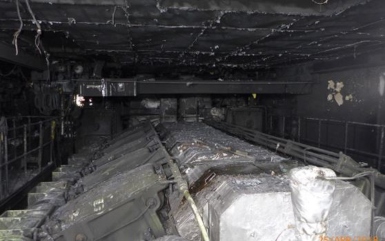
The Transportation Safety Board of Canada (TSB) has published an investigation report about the bottom contact of the passenger ferry ‘Deer Island Princess II’ near Letete, New Brunswick, in February 2018. It has determined that common safety hazards, such as extremely low tides, had not been identified and mitigated by the operator of the vessel.
On 2 February 2018, the passenger ferry Deer Island Princess II, with 4 people onboard, made bottom contact while transiting from Butler Point, Deer Island, New Brunswick to Letete, New Brunswick. As a result, one of two Z-drive thruster units detached from the vessel. The crew aborted its voyage and was proceeding back to Butler Point Continue reading “Ferry bottom contact linked to safety management deficiencies”










